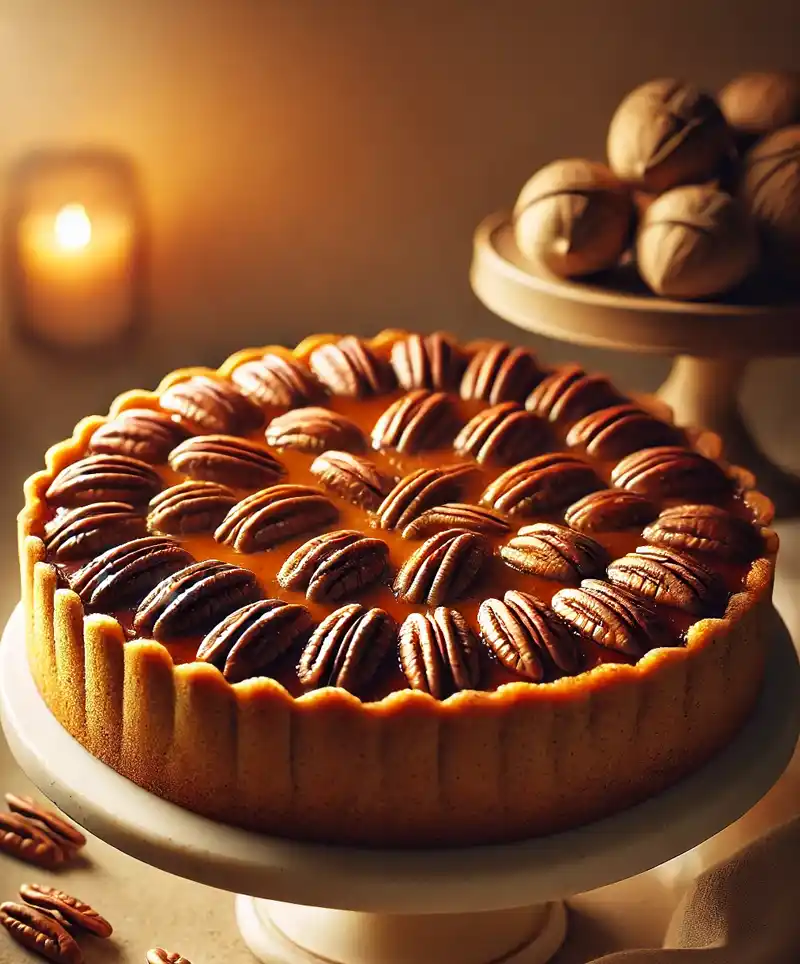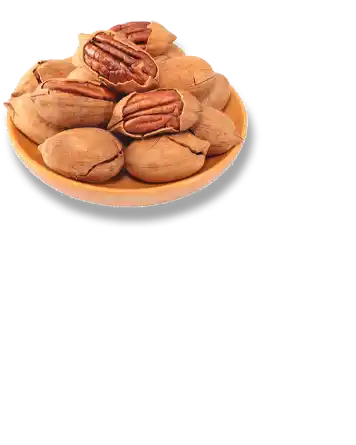The Pecan's Posh Pedigree
Pecans, the luxurious nut of the American South, have a history as rich as their buttery flavor. These tasty tree nuts hail from the hickory family, Carya illinoinensis if you want to impress someone at a party. Native to North America, pecans were a staple in the diet of Native Americans long before European settlers arrived. The word "pecan" comes from the Algonquin word pakan, meaning "a nut requiring a stone to crack." This might explain why pecan pies come with a side of dental insurance.
The Torte That's Anything But Torturous
The pecan torte is not just a dessert; it's a celebration of all things nutty and nice. A torte, for the uninitiated, is a cake that’s a little too fancy for its own good. Unlike your average cake, a torte is often made with little or no flour, relying instead on ground nuts, making pecans the perfect protagonist in this dessert drama.
Imagine a dessert so rich, dense, and decadent that it could easily stand in for that fancy chocolate cake your aunt insists on bringing to every holiday gathering. Now, add the crunch of pecans, the smoothness of cream, and a dash of that Southern charm, and you’ve got yourself a pecan torte. This dessert doesn't just sit on a plate—it lounges, perhaps with a mint julep in hand.
 Not Just for Squirrels
Not Just for Squirrels
Pecans aren't just delicious; they're also nutritional powerhouses. Packed with healthy fats, fiber, vitamins, and minerals, pecans are practically a health food—if you overlook the sugar in that torte. In fact, pecans are known for their heart-healthy properties, making them the perfect excuse to eat another slice. After all, you're not just indulging; you're investing in your cardiovascular future!
These nuts are also a great source of antioxidants. So, the next time someone gives you grief for having a second helping of pecan torte, remind them that you’re simply engaging in some preventive healthcare.
The Peculiar World of Pecan Pronunciation
If there’s one thing that can divide families, split friendships, and spark a lively debate at any dinner table, it’s the pronunciation of the word “pecan.” It’s as if this humble nut has taken it upon itself to become a linguistic landmine, ready to explode the moment someone utters its name.
The most common pronunciations are pee-KAHN, puh-KAHN, and PEE-can, but regional variations abound. In the Deep South, where pecan trees stretch their branches wide and proud, it’s typically puh-KAHN. This pronunciation is said to have a certain elegance, like the genteel drawl of a Southern belle. It rolls off the tongue with the same smoothness as a spoonful of pecan pie filling.
However, venture northward, and you might hear PEE-can. This version has a certain snap to it, much like the brisk pace of life in a colder climate. It’s straightforward, no-nonsense, and perhaps a bit utilitarian—just like a can of peas. In fact, some people joke that this pronunciation sounds like a misnamed container, possibly found in the back of your pantry.
But wait, there's more! In certain pockets of the Midwest, you might encounter the elusive peh-KAHN. It’s a rare breed of pronunciation, often spoken in hushed tones as if its very existence is a well-kept secret. It’s the pronunciation equivalent of finding a perfectly whole pecan in a bag of halves—a small, delightful surprise.
 The Pecan Pronunciation Quiz
The Pecan Pronunciation Quiz
To help settle the score—or perhaps stir the pot—we’ve devised a little quiz. Which pronunciation camp do you belong to?
-
You’re at a holiday gathering, and someone offers you a slice of pecan pie. You say:
- a) “I’d love some puh-KAHN pie, thank you kindly.”
- b) “Oh, PEE-can pie! My favorite!”
- c) “Peh-KAHN pie? I don’t mind if I do!”
-
You’re strolling through a pecan orchard. What are you likely thinking?
- a) “What a lovely place to find some puh-KAHNs.”
- b) “Where can I get some PEE-cans around here?”
- c) “I bet these peh-KAHNs make excellent cookies.”
-
You’re at a fancy dinner party, and the topic of pecan pronunciation comes up. You:
- a) Politely explain the virtues of puh-KAHN.
- b) Defend PEE-can as the one true pronunciation.
- c) Shrug and say, “To-may-to, to-mah-to—just pass the pie!”
A Pronunciation Pecan Pie Chart: We all know that the true mark of civilization is how a group of people pronounce "pecan." After all, language is a living, breathing thing, evolving with every bite of pecan pie we take. So, to truly capture the spirit of this debate, imagine a pie chart—not just any pie chart, but a pecan pie chart. This chart divides the country (and possibly the world) into regions based on their preferred pronunciation. Here’s a quick slice:
- South: puh-KAHN – 60% of the pie
- Northeast & Midwest: PEE-can – 30% of the pie
- Other: peh-KAHN or other variations – 10% of the pie
(Note: This chart is entirely unscientific and probably as accurate as predicting the weather with a handful of pecans. But it’s delicious fun!)
Given the passion surrounding this debate, perhaps it’s time for a National Pecan Pronunciation Day. Imagine a day dedicated entirely to friendly arguments over how to say this beloved nut's name. There could be competitions, with contestants from different regions going head-to-head in a battle of dialects. There could even be a pronunciation poll, with results announced alongside a slice of pecan torte—no matter how you pronounce it.
Celebrating National Pecan Torte Day
National Pecan Torte Day, observed on August 22, is the perfect excuse to indulge in this delightful dessert. Whether you’re a seasoned baker or just someone who knows their way around a fork, there are plenty of ways to celebrate.
- Bake Your Own: Feeling adventurous? Try baking your own pecan torte. Don’t worry if it looks a little rustic—that’s just part of the charm. Remember, a homemade torte is like a work of art; it doesn’t have to be perfect to be appreciated.
- Torte Tasting: If baking isn't your thing, why not organize a pecan torte tasting? Gather a few friends and sample different recipes. Just be sure to pace yourself—those tortes are richer than a Southern debutante.
- Go Nuts: Not a fan of tortes? Celebrate pecans in other ways. Add them to your salad, stir them into your oatmeal, or simply snack on them by the handful. It’s all part of the fun!
 A Few Final Nutty Thoughts
A Few Final Nutty Thoughts
Pecans have come a long way from their humble origins as wild foraged food to their star status in the world of desserts. On National Pecan Torte Day, we not only celebrate the torte itself but also the history, versatility, and downright deliciousness of the pecan. So whether you’re a pee-KAHN person or a puh-KAHN aficionado, this day is for you. Indulge a little, laugh a lot, and remember: life’s too short to skip dessert, especially when it’s pecan torte.
Please Share our Content






 Not Just for Squirrels
Not Just for Squirrels The Pecan Pronunciation Quiz
The Pecan Pronunciation Quiz A Few Final Nutty Thoughts
A Few Final Nutty Thoughts








 "Sláinte!" is a traditional Irish expression used as a toast, equivalent to "Cheers!" in English.
"Sláinte!" is a traditional Irish expression used as a toast, equivalent to "Cheers!" in English.